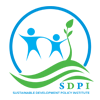Education is a basic human right and a significant factor in the development of children, communities, and countries. For development country like Nepal education helps to break the intergenerational chains of poverty. Many children or young adult are a drop out from secondary or higher education due to lack of financial crisis within the family. Such family pressurizes them to engage in income generating activities either by migrating to urban areas or flying abroad for employment opportunities.
According to the Nepal labor force survey (NLSS) 2010/11, almost 39.1% people in the age group 6 years and above and 43.5% people in the age group 15 years and above are still deprived of the opportunity to be literate. Nearly 55.5 percent females compared to 28.4 percent males lack knowledge and skills to read and write a simple sentence. (Education for all, 2015)
Sustainable Development Policy Institute (SDPI) aims children living in poverty and a vulnerable situation will be acquiring quality and skill-based education.

